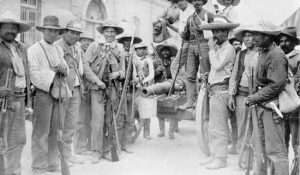This week had a lot of information about many different countries and organizations, in which things are happening today or have been happening in the last 20 years. Many of the government policies and decisions seem to have similarities to some of the authoritarianism regimes from earlier years, and the slight undertones of caudillo ideals. It is interesting, in the “exit” portion of the reading, that elites from Latin America chose to invest their money elsewhere in the world, or just moving abroad for a majority of the year and coming back to Latin America every now and then. All of this because the economies were so bad and their money could go so much father in other places in the world.
I think that the issue of the gas extraction and export is a really important topic to discuss, especially in the state of the world today. I wonder what is going to happen to the economies that are exporting the gas products once the gas runs out. As we as a global community try to search for alternatives for power, I think that the thinking about gas needs to change. Even here in Vancouver with many gas stations closing, gives us the visual of the issues that are happening around us, with a very real sense of the question of what will we do without gas? How will we adapt to a more environmentally friendly mindset, and come up with real solutions to the problems that the gas industry is currently facing?
On another note, about giving rights to nature and helping conserve the environment. I visited Ecuador a few years ago now, and what I learned about jungle conservation and the increasing awareness of clear cutting and destroying ecosystems, was hopeful. It seems like real steps are being taken to conserve one of the most important things that we have on this planet; our forests and jungles. I think that we can take a few notes from these kinds of attitudes over here in Vancouver. We are destroying valuable areas of land and killing off species, ruining ecosystems and life sources for animals. A solution for all the environmental issues we have today will have to be a radical one. We are coming close to a point of no return with our earth and something must be done.
I suppose this is the uncertain future Dawson is talking about.

